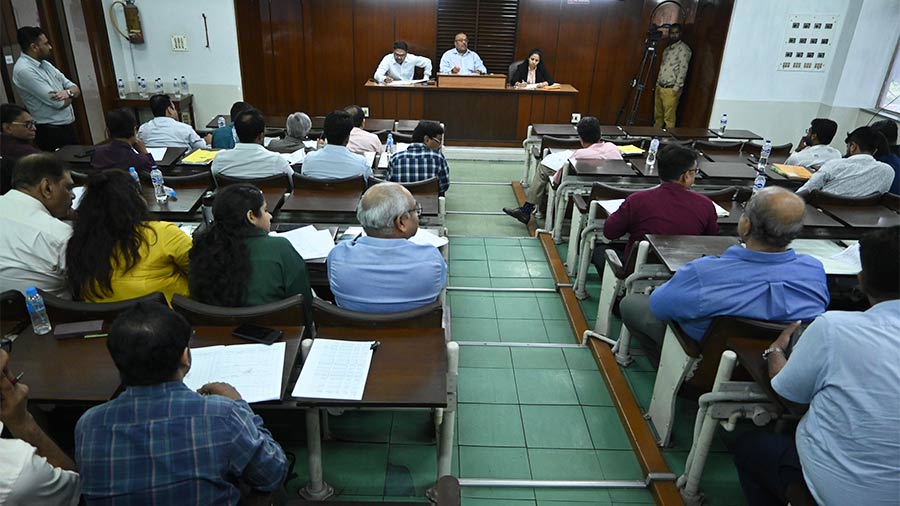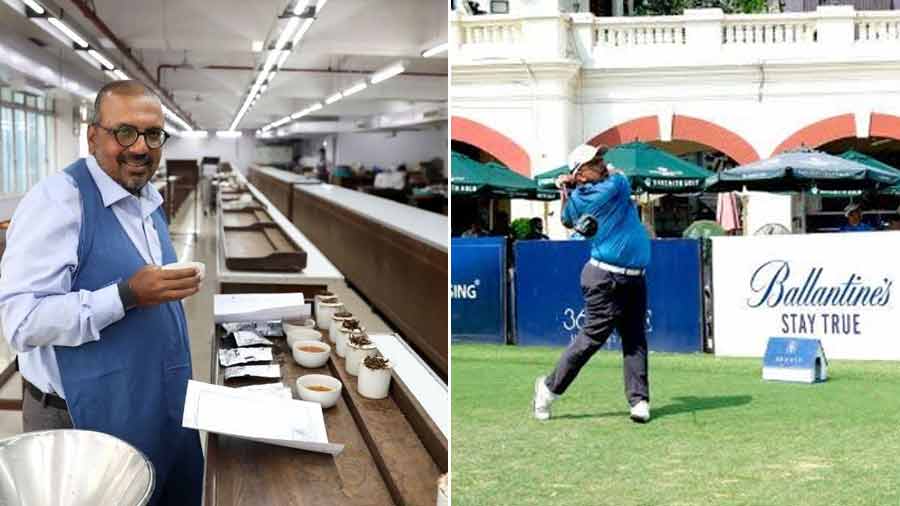“One bid, two bid, three bid, sold,” echoed the halls of Nilhat House, nestled in the heart of Dalhousie, right next to the Tea Board of India on November 10. It had been more than a decade since the walls of this institution, which is regarded as the world’s oldest surviving tea auction centre, had last heard such bids. In 2011, in an attempt to elevate convenience and transparency, the Tea Board had ushered in electronic media to auction varieties of tea. Soon, orthodox tea, a high-quality loose-leaf variant, joined the bandwagon. Soon enough, the highest bidders and finest exporters sat propped behind screens in their respective offices and clanked bids through buttons on their keyboards. This Dhanteras, the Association of Tea Auctioneers (ATA) decided to turn back the clock by reviving the age-old manual auction.
A commemorative sale to give a taste of old auctions
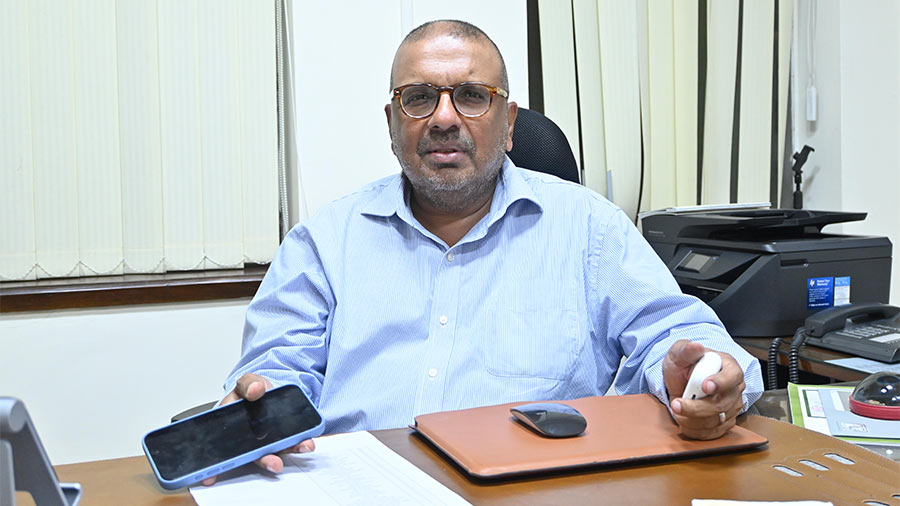
Gaurav Ghosh
“The manual auction deals only with orthodox tea and is predominantly held to bring auctioneers together in light of Diwali. As Nilhat House already hosts the prerequisites that are required for a manual auction, we decided to host one this year to allow buyers and sellers to meet at a common platform and network with one another on the occasion of Dhanteras. It’s a commemorative sale and the online auctions will continue to be organised by the Tea Board,” stated Gaurav Ghosh, auctioneer for the day and vice chairman of J Thomas & Co.
The Diwali auction, which also commemorated the launch of the ATA, was a “refreshing change in the era of muted online auctions”, according to the buyers and sellers present in the auction room. ATA comprises several auctioneering bodies, four of which, namely J Thomas, Paramount Tea, Contemporary Brokers and Parcon, auctioned at the event. The buyers, which consisted solely of tea exporters, were required to place their bids like in any other auction. They will be required to make their respective payments within 21 days, following which a delivery order will be sanctioned to collect their respective lots amongst the 795 which were auctioned over six and a half hours.
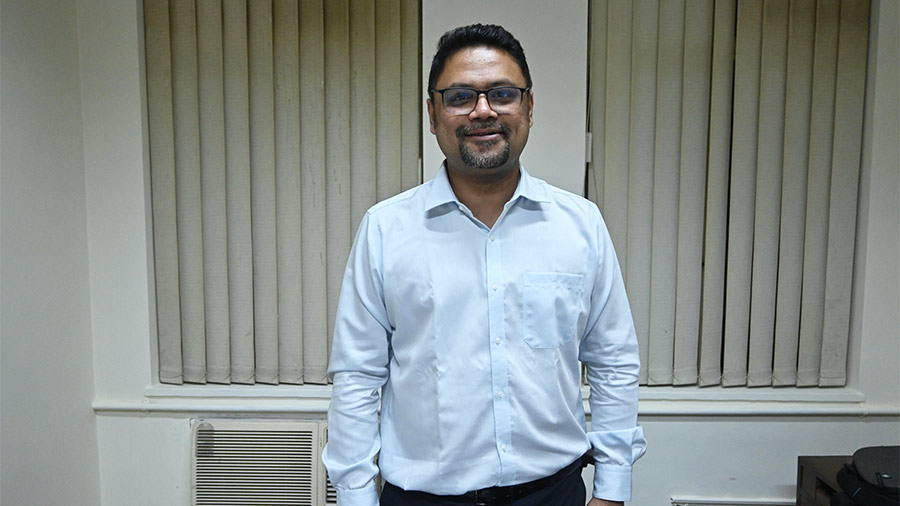
Arjun Sharma
“Manual auctions were subject to time constraints, and a lot of stakeholders also felt that they were not achieving correct prices due to backdoor market manipulations. However, face-to-face interaction in any industry is extremely crucial and we wanted to give the current generation a taste of what tea auctions used to be like back in the day,” remarked Arjun Sharma, general manager of J Thomas & Co., when asked whether it was the offline or online mode he preferred.
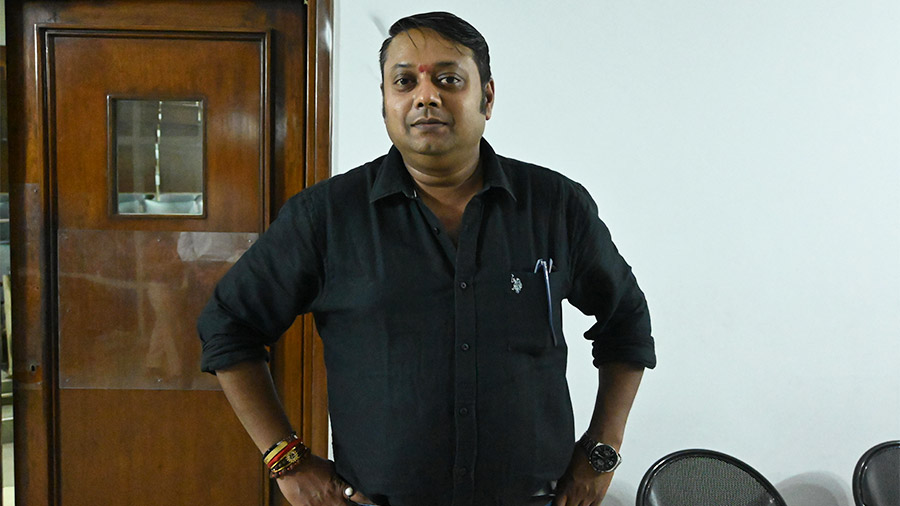
Sunando Gupta
As buyers reunited in the offline space after 12 long years, they occupied the same seats they used to back in the day to reignite the auctioneer’s spatial memories. “We have gotten accustomed to e-auctions but the manual one was an enjoyable diversion from routine operations. If we employ both methods, I believe there will be better clarity and public relations in the tea market,” stated buyer Sunando Gupta, AGM of M. K. Jokai Agri Plantations Pvt. Ltd., which hosts seven plantations across the nation including ones in Muttuck and Nalini.
‘There’s friendly banter and you can feel everybody’s passion for tea’
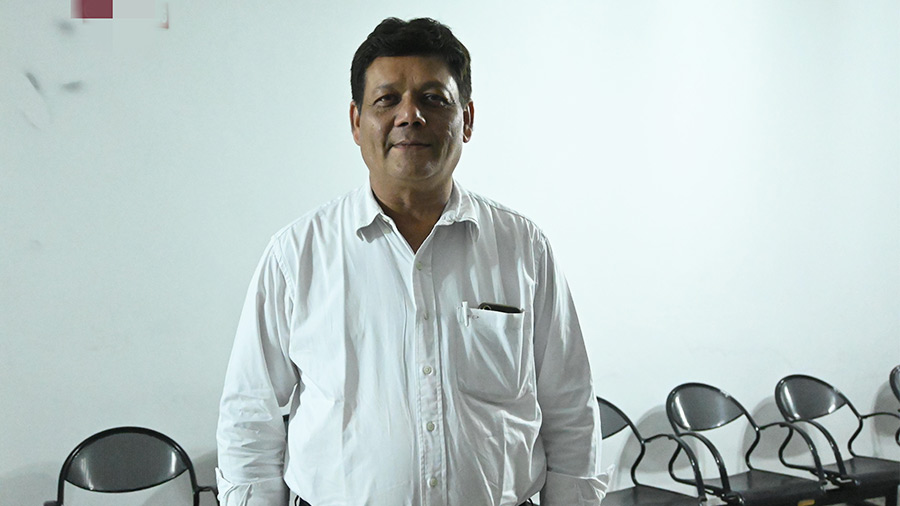
Bhavin Patel
Some stated how manual tea auctions are a double-edged sword. “I’ve been buying teas via auctions for the last 35 years. The manual auction helps us to understand the market pulse better. However, in the online mode, one can bid from anywhere in the world. There are pros and cons to both, but I’d love to visit more manual auctions if given the opportunity,” said buyer Bhavin Patel from Alps International.
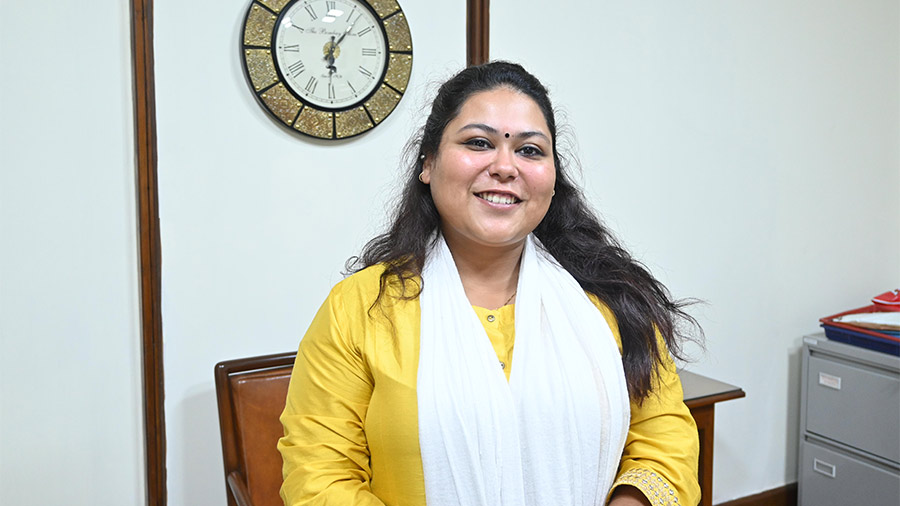
Dhanshree Shah
The highest procurers of the day, according to Ghosh, were the Shah Brothers. “There’s a certain excitement in the room during manual auctions. There’s friendly banter and you can feel everybody’s passion for tea. There are tricks of manual auctions that one learns over the years, which help us in building a more cohesive understanding of the buyer-seller paradigm,” observed Dhanshree Shah, who is a fourth-generation member of her 90-year-old family business. Dhanshree had last visited a manual auction when she was in school, alongside her father.
